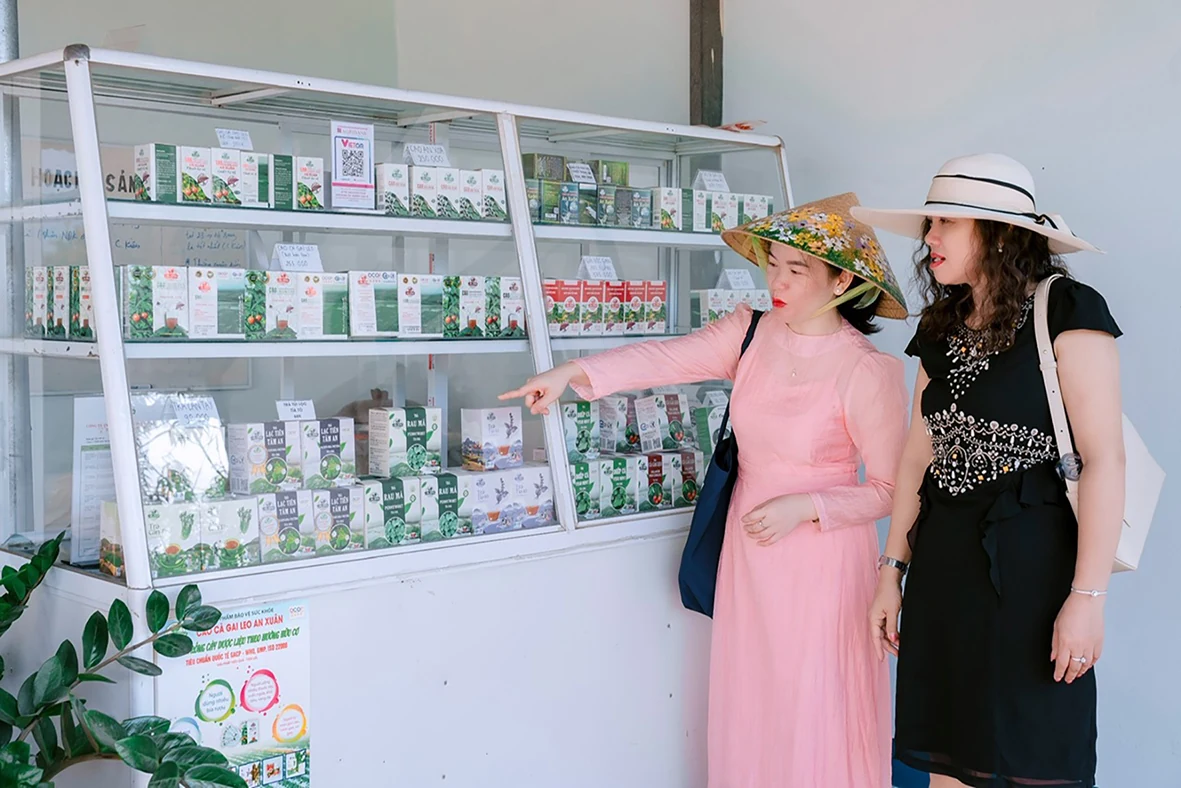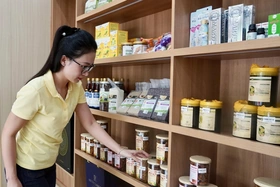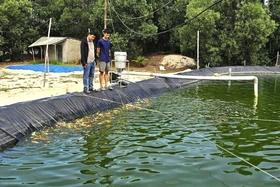{title}
{publish}
{head}
The Quang Tri Provincial People’s Committee on November 10 issued a master plan for the development of medicinal plants in the province through 2026, with a vision extending to 2030. In the long term, the plan aims to reorganize production, establish large-scale, concentrated medicinal plant production areas, promote the formation of value chain linkages, and integrate production with processing and consumption. It also focuses on the application of scientific and technological advancements in production, preliminary processing, and manufacturing, as well as the development of product branding and market expansion.
As of now, Quang Tri Province has 3,555 hectares of medicinal plants, both cultivated and naturally grown, distributed across most of the province, with a concentration in the districts of Huong Hoa, Dakrong, Cam Lo, Gio Linh, and Vinh Linh. By June 2024, the province had 113 OCOP products, including 42 rated 4 stars and 71 rated 3 stars. The province’s signature products, especially the OCOP-ranked ones, including medicinal plant products, have seen improvements in quality, packaging, labels, and traceability to meet product certification and regulation requirements.

Customers explore the products of An Xuan Organic Herbal Medicine Co., Ltd., located in Cam Tuyen Commune, Cam Lo District. Photo: D.T
To support the development of the medicinal plant economy, the province has laid down basic infrastructure, human resources, and technology, gradually establishing the foundation for the medicinal plant sector. The experience and eco-tourism industry has also begun to grow, with increasing numbers of tourists, especially in Huong Hoa District. This growth creates favorable conditions for developing medicinal plant-based tourism, leveraging an existing customer base rather than developing a market from scratch.
From now until 2030, Quang Tri Province has set specific goals for its medicinal plant economy, including: achieving 4,500 hectares of medicinal plant cultivation by 2026, with 1,000 hectares newly planted (200 hectares concentrated, 800 hectares under forest canopy); reaching 7,000 hectares by 2030 (2,500 hectares newly planted, including 1,000 hectares concentrated, 1,500 hectares under forest canopy). The province aims to increase the medicinal plant sector’s value by 1.5 times by 2026 and by 2 to 3 times by 2030.
The province plans to develop medicinal plant value chains, ensuring high-quality, stable products and services, reducing intermediary costs. By 2026, at least 10 cooperatives or enterprises (HTX/DN) involved in preliminary processing, manufacturing, and preserving medicinal plant products will be established or upgraded, with at least 60% of these entities operating legally. By 2030, 10 additional cooperatives/enterprises are expected. At least 2 value chains will be formed by 2026, with 3 more added by 2030.
The medicinal plant industry in Quang Tri will be customer-oriented, focusing on adding value to products that are competitive both domestically and internationally. The province also aims to develop medicinal plant tourism to attract both domestic and international tourists. By 2026, at least one key business in the province will be responsible for at least one strategic medicinal plant, and by 2030, four such businesses will be established, with at least one model of a final chain business involving medicinal plant growers.
Efforts will be made to promote Quang Tri’s medicinal plant products as clean, high-quality, transparent, and easily accessible to target customers. By 2026, 20% of products will be traceable in the value chain, with 80% by 2030. The proportion of B2B customers in the value chain (with long-term contracts) will account for at least 30% by 2026 and 60% by 2030.
The province will focus on developing 20 key medicinal plant species, grouped into categories: Group 1 includes large-scale plants with a national market, such as eucalyptus; Group 2 includes plants specific to the province, such as “che vang” tea; Group 3 includes 9 species that have been successfully developed in the province but are also grown in other regions, like turmeric, five-veined eucalyptus, lemongrass, and others. Group 4 includes 9 species that still need further evaluation, including cinnamon and ginseng. Group 5 consists of plants or products from local ethnic minority communities, particularly the Van Kieu and Pa Ko peoples, which will be integrated into the OCOP program.
The development of the medicinal plant economy will focus on products related to OCOP sectors, such as food, beverages, medicinal plants, and handicrafts, as well as tourism services. Enterprises, cooperatives, farm households, and individuals involved in cultivating, processing, preserving, and selling medicinal plant products will play a key role in implementing this plan.
The plan is divided into two phases. Phase 1 (2024–2026) focuses on establishing the ecosystem and basic infrastructure for the province’s medicinal plant economy, including the experimental cultivation of new species such as cinnamon. This phase will also aim to establish at least one center for the conservation of key plant species. Phase 2 (2027–2030) will expand cultivation areas, develop value chains, and apply higher standards (such as GACP-WHO, Organic, and Fairtrade). It will also involve upgrading production facilities, applying new technologies, and increasing efficiency to reduce costs and enhance business performance, along with building the Quang Tri medicinal plant brand.
Quang Tri has outlined seven key tasks and solutions for transitioning to a medicinal plant economy, including: focusing on research and exploring large-scale development opportunities; selecting plants with competitive advantages; transitioning from “growing medicinal plants” to a full-fledged “medicinal plant economy”; positioning the medicinal plant industry in the province; developing marketing systems; improving knowledge and skills for management and staff; and establishing a system for verifying production, business conditions, and quality control for medicinal plant products.
The development of agricultural and community-based tourism is not unique to Quang Tri, as it has already gained momentum in many other regions. The Prime Minister has issued a decision to promote agricultural and rural tourism development.
The Ministry of Agriculture and Rural Development has signed a joint document with the Ministry of Culture, Sports, and Tourism to advance this program. This is a global trend and a competitive advantage for us.
Therefore, integrating this sector into the broader agricultural tourism industry and establishing it as a brand is a key issue that needs attention. In the long term, developing tourism linked to OCOP products is an effective approach. Rural youth will be a suitable labor force to complement the current models, which are facing a labor shortage in the tourism sector.
However, a major challenge in developing agricultural and community tourism is the conversion and appropriate use of agricultural land for tourism purposes.
The Ministry of Agriculture and Rural Development believes that creating rural landscapes is essential to retain tourists, as this model aligns with community-based, rural tourism. The Ministry will work with the Ministry of Natural Resources and Environment to revise regulations on cooperative land and farmland for tourism use, aiming to strike a balance between maintaining sufficient agricultural land and providing space for agricultural and rural tourism development.
Duc Tan - Ngoc Mai

QTO - In Quang Tri, clean agricultural stores may not flaunt flashy signs or wide storefronts, but they are quietly becoming trusted places where consumers...

QTO - In a quiet village in central Vietnam, Le Minh Duc, 26, has turned his passion for ornamental fish into a promising startup, the first Koi breeding...